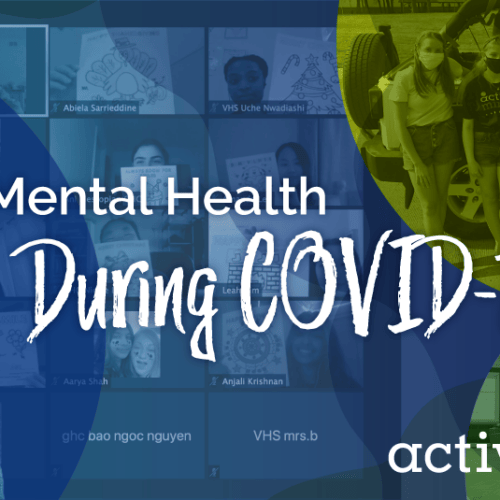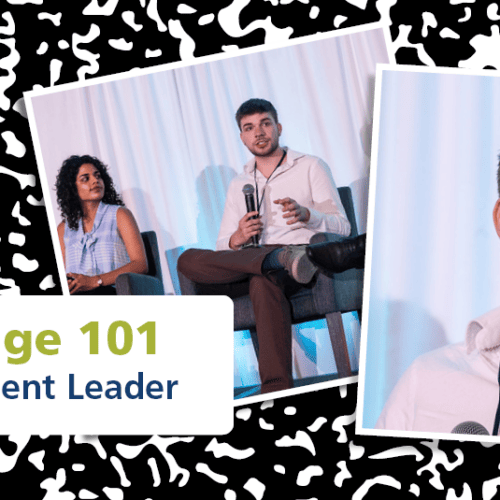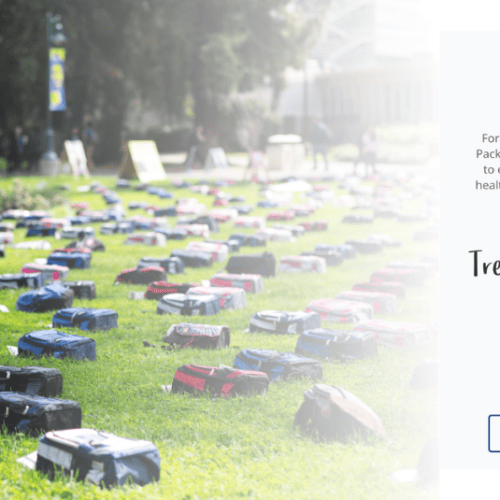Content Warning: This piece contains mentions of suicide.
Written by Remi Larson, Active Minds Student Advisory Committee and Active Minds at UCLA member.
I’m here. I’m breathing. I’m alive. This surprises me sometimes. Then I remember how lucky I am for this second chance.
When I attempted suicide I felt there was no hope left. I couldn’t imagine another day, another hour, even another minute of enduring the pain I was in. I was tired of fighting and I gave into the darkness I fought so hard to keep at bay daily.
I wish someone had been there to ask me the hard questions. I needed someone to ask me those specific and targeted questions: was I having thoughts of hurting myself; did I have a plan; and did I have the means to carry out that plan? I needed someone to be a bright light for me, someone to reach across the darkness of my depression that had left me numb to all emotion.
I’m so grateful that I’m still alive to say that I am the survivor of a suicide attempt. My experience has contributed to my passion for mental health advocacy and given me the desire to educate others about suicide. After all, suicide is the tenth leading cause of death in the United States, and second among people aged 15-34 years.
Many are afraid to say the word “suicide,” especially to those they are concerned might be having suicidal thoughts; however, discussing suicide will not give someone the idea to take their life if they have not already thought about it themselves. Instead, letting go of the fear of the topic of suicide lets the person know that you are there for them.
Although I had a newfound sense of hope and desire to live after my attempt, those around me were careful to watch over me. They were unsure what to say or do. The first few days of my recovery seemed to have a strange quality to them. I felt disconnected and like I couldn’t participate in the world around me. I had all of these feelings but I couldn’t access them—I was in a bubble with my emotions just out of reach.
Although my parents were there for me, some of what they said and did was well-intentioned but misguided.
I had disrupted what was seemingly a typical Wednesday night for my parents and they didn’t know how to react. In trying to convey their love for me, they said things like, “doing silly things like this is the only thing that hurts us.” That sort of stuff had the opposite of its intended effect.
I was left feeling guilty for what I had done and that sense of guilt only reaffirmed my negative beliefs. I knew they just wanted to understand why I had done what I had, but the constant questioning about why and how and asking “didn’t you think about us—how this would affect us—it would kill us?” was too much for me. I was overwhelmed by the constant question of how I was feeling. I wanted to talk about these things at my own pace. I was surrounded not only by my own emotions about what had happened, but those of my parents as well.
My parents didn’t get it all wrong, though, and their hearts were definitely in the right place. They didn’t have information available to them, but through trial and error they became a great source of support in my recovery.
When I came home from the hospital, my recovery was the focus. They took me to the movies and let me choose dinner, we played with my dog, and we joked as usual. Once I was home they did their best to make me comfortable and help me return to normal daily life. I appreciated every time my mom or dad made the simple comments “I love you” or “I’m here for you.” It let me know that when I was ready we would talk about what had happened, but that they weren’t going to force the conversation.
To be there and support someone doesn’t mean you have to do some grand gesture, rather, simple and direct words and actions make all the difference. The hardest things to say often are the exact things that need to be said. We must overcome our fear of those close to us considering suicide in order to reach them and provide support before an attempt is made; after an attempt is made we must overcome our disbelief about what has happened and simply be there for the one we love.
Are you or someone you know in crisis? Call the National Suicide Prevention Lifeline at 1-800-273-8255 or text “BRAVE” to 741-741 to reach Crisis Text Line.







